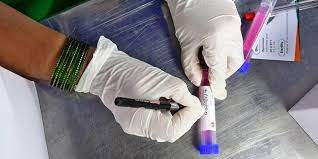LONDON, July 28: Inflammation and blood clotting seen in very severe cases of COVID-19 may be caused by the antibodies sent to fight the disease triggering unnecessary platelet activity in the lungs, according to a study published on Wednesday.
The researchers, including those from Imperial College London in the UK, also found that it was possible to reduce or stop platelets from responding in this way by treating blood with active ingredients from different drugs known to either inhibit platelet function or immune responses.
The study, published in the journal Blood, shows how antibodies produced by our bodies to protect against COVID-19 are activating increased function of platelets, which may be causing fatal blood clots in patients with severe disease.
Platelets are small cells found in blood which form clots to stop or prevent bleeding, but abnormal platelet function can lead to serious health concerns such as strokes and heart attacks.
“Until now, we have only had assumptions about why platelets involved in clotting were being activated during COVID-19 infection,” said Professor Jon Gibbins, from the University of Reading in the UK.
“The antibodies that are produced to stop COVID-19 from spreading trigger infected cells to induce platelet activity which causes clotting even though there is no wound that needs healing,” Gibbins said.
In the latest study, the researchers took antibodies produced to fight the coronavirus’s spike protein, from people with severe COVID-19 infections, and cloned them in a laboratory.
The spike protein helps the SARS-COV-2 virus to infect and enter the human cells.
The researchers found that the small sugars found on the surface of these antibodies were different to antibodies from healthy individuals.
When they introduced those cloned antibodies in a lab to blood cells taken from healthy donors, there was an observed increase in platelet activity.
The study suggests that it may be possible for drugs that are currently used to treat immune system problems to reduce or stop the cells from developing an exaggerated platelet response.
A trial led by Imperial College London and Imperial College Healthcare NHS Trust is already testing these drugs in clinical trials with patients at hospital sites across the UK to see whether they will reduce serious clotting for hospitalised COVID-19 patients, the researchers said.
The study of platelets in the laboratory establishes important mechanisms that explain how and why dangerous blood clots may occur in severely ill COVID-19 patients, and importantly, also provides clues as to how this may be prevented, they added. (PTI)
Trending Now
E-Paper


